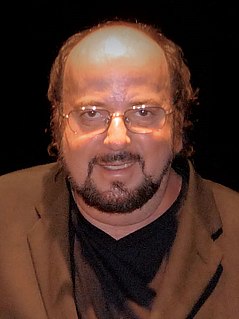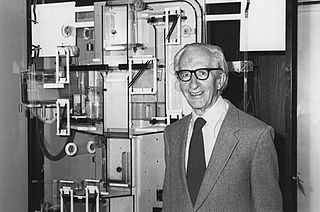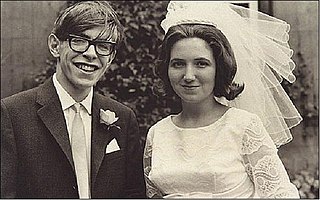A Quote by James Toback
I think there's a general sense that the belief structures that existed and carried civilization forward have weakened to the point where they can no longer support it. They are not powerful enough to do it anymore because there is not enough serious belief in them.
Related Quotes
A belief in God may not be fully within me anymore, but there's still a belief in belief. The high drama and power of the Church has stayed with me. As a child in church, I saw grown men at the altar crying out for God's mercy. And the idea of someone doing that has become a joke in the popular culture, but when you are there and you see it, you experience - for a moment - an incredibly raw, honest, strange insight into what it means to be a human being. Those experiences don't leave you. Whatever you think of them, they are powerful experiences.
Until the content of a belief is made clear, the appeal to accept the belief on faith is beside the point, for one would not know what one has accepted. The request for the meaning of a religious belief is logically prior to the question of accepting that belief on faith or to the question of whether that belief constitutes knowledge.
The death of God represents not only the realization that gods have never existed, but the contention that such a belief is no longer even irrationally possible: that neither reason nor the taste and temper of the times condones it. The belief lingers on, of course, but it does so like astrology or a faith in a flat earth.
Belief is one of the most powerful organic forces in the multiverse. It may not be able to move mountains, exactly. But it can create someone who can. People get exactly the wrong idea about belief. They think it works back to front. They think the sequence is, first object, then belief. In fact, it works the other way.
Man has existed for about a million years. He has possessed writing for about 6,000 years, agriculture somewhat longer, but perhaps not much longer. Science, as a dominant factor in determining the belief of educated men, has existed for about 300 years; as a source of economic technique, for about 150 years. In this brief period it has proved itself an incredibly powerful revolutionary force. When we consider how recently it has risen to power, we find ourselves forced to believe that we are at the very beginning of its work in transforming human life.
Religion becomes a matter of belief, and belief acts as a limitation on the mind; and the mind then is never free. But it is only in freedom that you can find out what is true, what is God, not through any belief; because your belief projects what you think God ought to be, what you think ought to be true. If you believe God is love, God is good, God is this or that, your very belief prevents you from understanding what is God, what is true.
Historically the belief in heaven and the belief in utopia are like compensatory buckets in a well: when one goes down the other comes up. When the classic religions decayed, communistic agitation rose in Athens (430 B.C.), and revolution began in Rome (133 B.C.); when these movements failed, resurrection faiths succeeded, culminating in Christianity; when, in our eighteenth century, Christian belief weakened, communism reappeared. In this perspective the future of religion is secure.
Belief isn't simply a thing for fair times and bright days...What is belief - what is faith - if you don't continue in it after failure?...Anyone can believe in someone, or something that always succeeds...But failure...ah, now, that is hard to believe in, certainly and truly. Difficult enough to have value. Sometimes we just have to wait long enough...then we find out why exactly it was that we kept believing...There's always another secret.
The assumed instinctive belief in God has been used by many persons as an argument for his existence. But this is a rash argument, as we should thus be compelled to believe in the existence of many cruel and malignant spirits, only a little more powerful than man; for the belief in them is far more general than in a beneficent deity.






































